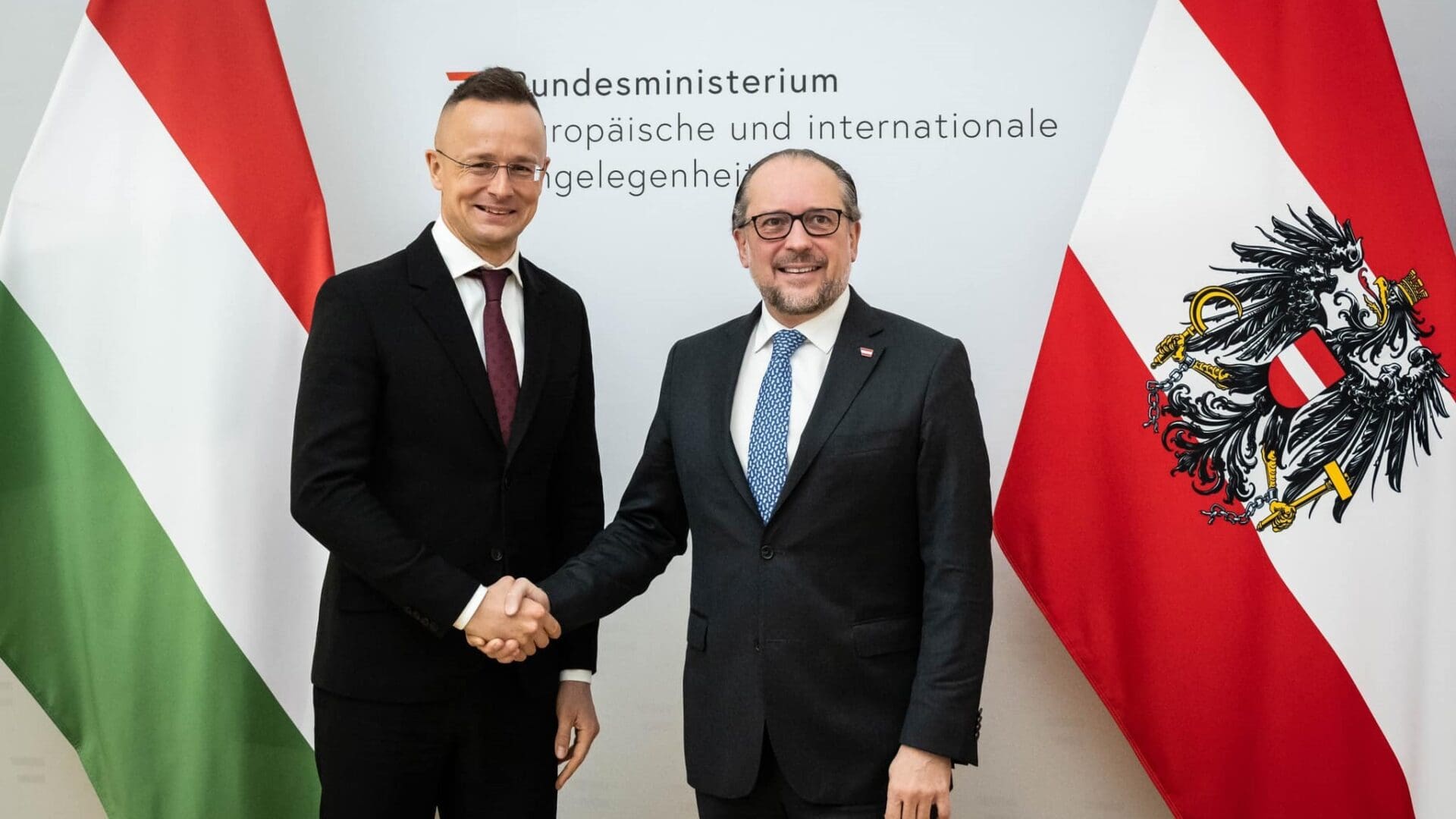Minister of Foreign Affairs and Trade Péter Szijjártó announced in Vienna after talks with his Austrian counterpart that Hungary considers Austria’s support crucial in achieving two essential objectives during Hungary’s upcoming EU presidency in the second half of 2024: combating illegal migration and accelerating EU enlargement towards the Western Balkans.
Following the meeting with Austrian Foreign Minister Alexander Schallenberg, Szijjártó disclosed that consultations have begun to ensure the success of Hungary’s rotating EU presidency in the latter half of 2024. He explained that Vienna was chosen as the starting point for these consultations due to the substantial support expected from Austria in two key objectives for the Hungarian presidency: combating illegal migration and expediting EU expansion towards the Western Balkans.
Regarding illegal migration, Szijjártó highlighted Austria as one of the EU member states that speaks clearly and acts decisively against it. He emphasized Hungary’s similar stance and the necessity for a sharp political shift in Brussels
to ensure the European Union does not attract but rather halts illegal migration.
Szijjártó reminded of Hungary’s extensive experience in protecting its southern border and that of the EU while spending billions of euros. He argued that without these efforts, hundreds of thousands of illegal migrants stopped at the Hungarian border would have settled in Europe, worsening security, increasing the threat of terrorism, and heightening the risk of parallel societies. Hungary’s goal is for European regulations to finally respect international law, stating that refugees should seek asylum in the first safe country reached.
Szijjártó highlighted Hungary’s policy of admitting anyone fleeing war in Ukraine, while those coming from the south, having passed through at least three to five safe countries, have no right to entry. He asserted that only Hungarians have the right to decide who to admit and live with.
Szijjártó stressed the need for a sharp political change in Brussels so that the EU does not import problems but helps solve distant issues. As an example, he mentioned Africa’s rapidly growing population,
advocating for European investment, development, and training rather than encouraging Africans to relocate.
Hungary actively supports this approach, providing tens of millions of dollars to support development in African countries and offering scholarships to thousands of African students. Regarding the EU enlargement towards the Western Balkans, Szijjártó stated that the EU needs new momentum, which these countries can bring. He argued that the EU needs them more than they need EU membership, urging the acceleration of the accession process as one of Hungary’s goals during its upcoming EU presidency.
Szijjártó also discussed bilateral issues with his Austrian counterpart, emphasizing Austria’s reliability as a transit partner for Hungary in terms of energy supply, as over 20 per cent of Hungary’s annual gas consumption comes through Austria. Additionally, he assured Austria of Hungary’s continued support for its candidacy for membership in the UN Security Council for the 2027–28 term. During his visit, Szijjártó held talks with the Secretary-General of the Austrian Freedom Party and politicians in the Vienna parliament who are members of the Hungarian–Austrian Friendship Society. He was also scheduled to meet the head of the Austrian Industrialists’ Association later in the day.
Related articles:
Sources: Hungarian Conservative/KKM/MTI








